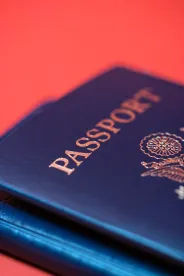The Office of Special Counsel Steps in to Address Common I-9 Violations
Retailer Macy’s entered into a settlement agreement with the Office of Special Counsel for Immigration-Related Unfair Employment Practices (OSC) last June for “unfair documentary practices” during the I-9 Form employment eligibility re-verification process. The OSC is responsible for enforcing anti-discrimination provisions of the Immigration and Nationality Act prohibiting citizenship and national origin discrimination against employers when hiring and firing.
Unfair documentary practices include treating employees differently by requiring more or different I-9 documents or limiting an employee’s choice of I-9 documents as part of the employee’s completion of the I-9 Form. Macy’s agreed to pay a civil penalty of $175,000, create a back pay fund of $100,000 to compensate individuals who suffered economic damages that included suspension, termination or other periods of lost work, restore seniority to those individuals who suffered economic damage as a result, and provide training to its human resources staff on anti-discrimination.
Electronic I-9 providers can contribute to unlawful I-9 policies by limiting the employee’s choice of documents to present based upon the immigration status the employee has selected in Section 1 of the I-9. Therefore, it is not only critical that the employer follow I-9 instructions and allow employees to choose their documentation to show identity and employment eligibility, but if it uses an outside electronic provider, it must ensure that the provider also permits the employees to select from the entire list of acceptable documentation on the I-9.
The OSC also took action recently against Forever 21, another popular retailer. The company was fined and had to pay an employee back-pay for requiring him to present a green card during the I-9 process. SOS Employment Group was also fined and had to pay back-pay recently for rejecting an unrestricted social security card to prove employment authorization and valid driver’s license to prove identity. These three OSC-generated cases signify the importance of employers properly training employees who review documentation supplied by the employee during the I-9 process.
The OSC has proactively issued several Technical Assistance Letters to advise employers in the following scenarios:
-
It is not permissible for a general contractor to re-verify I-9 documents presented by the employee of a sub-contractor at any time during the contractor-subcontractor relationship.
-
An employer cannot provide a payroll company with its employees’ I-9 forms to produce “pay cards” as this is not a use related to enforcement of the Immigration and Nationality Act.
-
Print-outs of E-Verify results should be only available to the employer’s authorized employee performing the E-Verify functions indentified in the Memorandum of Understanding entered into between the employer, the Social Security Administration, and the Department of Homeland Security.
Update on Frequent Problems Encountered by E-Verify Users
Since July 1, 2013, E-Verify has become mandatory in North Carolina for all private employers with 25 or more employees in North Carolina. The Monitoring and Compliance Branch of the United States Citizenship and Immigration Services has published guidance on the correct use of E-Verify in its E-Verify Self-Assessment Guide for E-Verify Direct Access Users. The most frequent problem areas during the E-Verify process are identified as:
-
Creating duplicate cases for the same employee
-
Verifying an employee who was hired before 11/07/1986
-
Immediately terminating employees whose E-Verify submission results are a tentative nonconfirmation (TNC)*
-
Failing to create a case by the 3rd day after the employee has commenced work for pay
-
Creating cases for employees who were hired before the employer enrolled in E-Verify
-
Not reviewing acceptable documents
-
Not reviewing a document containing a photo
Additionally, to assist new and even experienced E-Verify users, the E-Verify Users Manual, provides a walk-through of the E-Verify process with sample documents an employer can compare with the documents the employee has chosen to present. Since the list of acceptable documents and their appearance can change, it is important for an employer to have a recently downloaded copy of the Manual on hand to compare the employee’s documents with examples found in the Manual.
Governor McCrory Vetoes Bill Changing the Definition of Temporary Employee for E-Verify Purposes
On August 15, 2013, Governor McCrory vetoed House Bill 392 which would extend the definition of a temporary worker exempt from being run through E-Verify from 90 days to up to 9 months. Speaker of the House Thom Tillis has intimated that the veto could be the subject of an attempted override and, as a result, the Governor has called for the Legislature to reconvene on September 3, 2013 to resolve this matter.
* Beginning September 8, 2013, E-Verify will replace the current TNC Notice and Referral Letter with a Further Action Notice and Referral Date Confirmation. The new 1-page Referral Date Confirmation will be generated for the employer to give to their employee and will include the deadline for the employee to contest the case.





 />i
/>i

